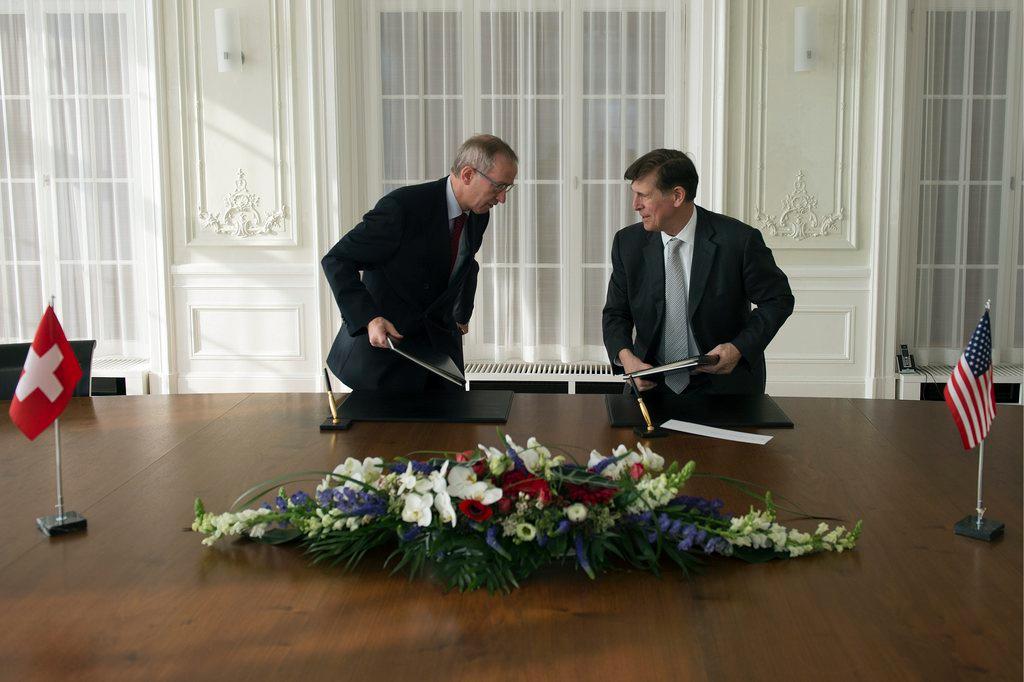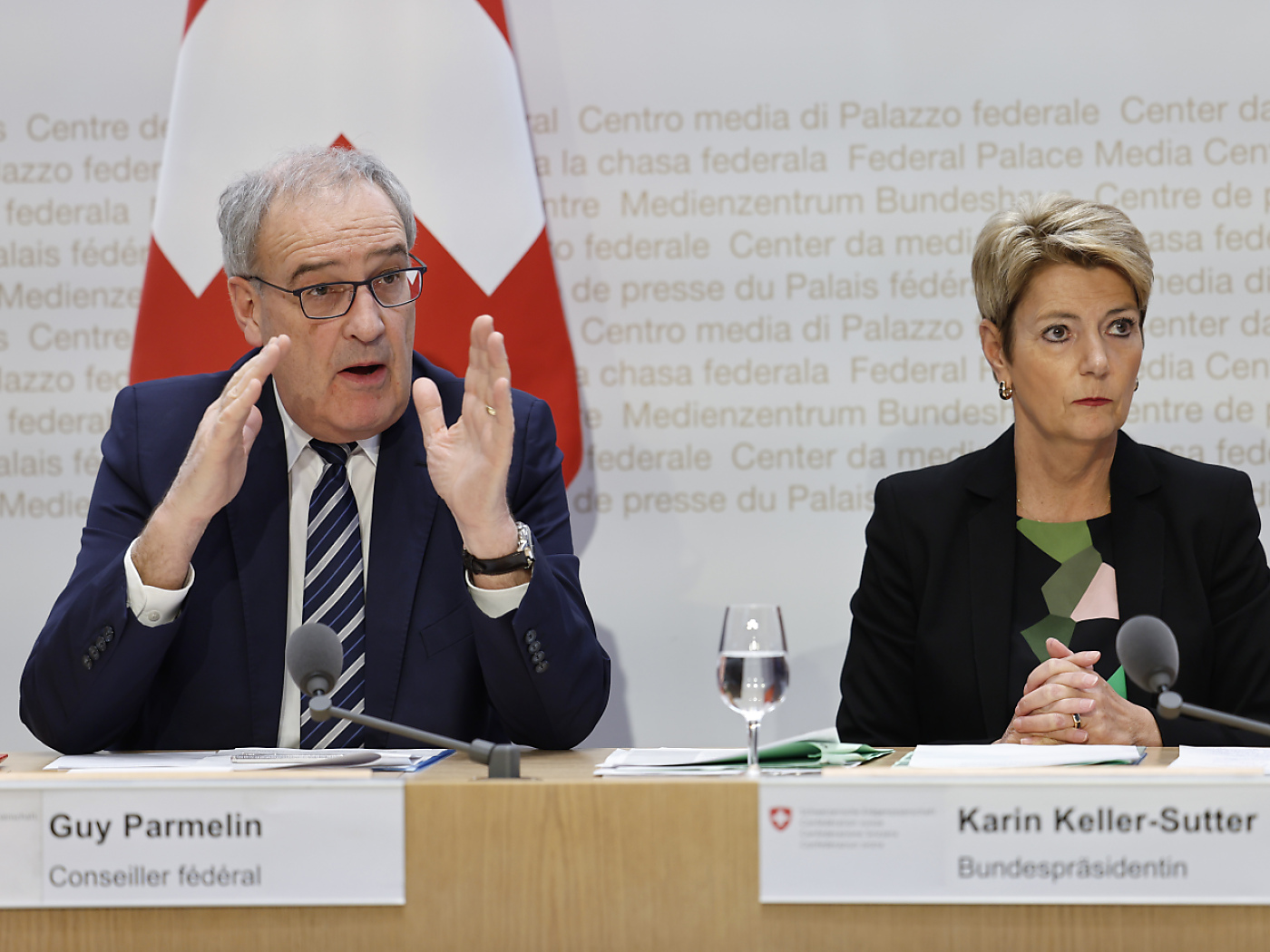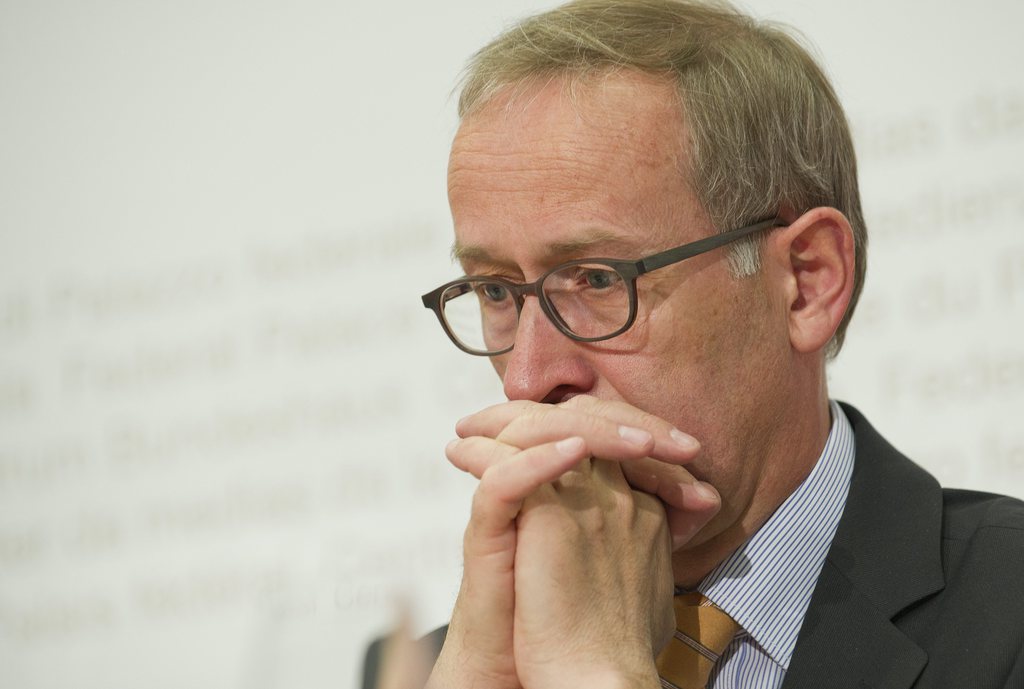‘Voter verdicts smooths path for diplomatic talks’

Despite all expectations to the contrary, the system of direct democracy with nationwide votes can help Swiss delegates trying to find a solution at international negotiating tables, says former top diplomat Michael Ambühl.
Experience with direct democracy in Switzerland has shown that it can be a burden at home, and create tensions abroad.
Citizen’s participation in foreign policy has been causing some headaches for the government over the past two decades. The implementation of an initiative from February 2014 to curb immigration from the European Union is just the latest example.
In 1994 Swiss voters approved an proposal by environmentalists that obviously collided with a transport agreement between Switzerland and the EU. The main aim of the Alpine Initiative was to move freight from the roads on to the rails.
However, the Swiss government and parliament have not really met this constitutional obligation. Solving the issue of moving heavy goods traffic from road to rail was simply done by introducing a special tax on lorries.
Michael Ambühl, professor of negotiation and conflict management at the Federal Institute of Technology in Zürich and former Swiss negotiator, calls for a similar solution to implement the highly controversial immigration restrictions endorsed by voters 16 months ago.
swissinfo.ch: Given your experience as former chief delegate, what is it like to sit down at the negotiating table to discuss a decision taken by the Swiss public?
Michael Ambühl: Having the backing from Swiss voters actually helps to justify a difficult negotiating mandate to the other side.
However, this does not mean that nationwide votes usually make our lives at the negotiating table easier. If the ballot box decisions are at odds with the European concept of the Swiss government and parliament, it is not going to be easy for the negotiators.
But this makes the job definitely exciting.
swissinfo.ch: Your successor, the chief negotiator with the EU Yves Rossier, is faced with an insurmountable task as curbing immigration and free movement of people are non-negotiable for Brussels. What are his chances?
M.A.: If we want to maintain our bilateral treaties with the EU, it is going to be pretty difficult to apply the constitutional article on limiting immigration exactly as written.
We would have to introduce quotas and priorities for Swiss nationals if we wanted to do that.
I have doubts though that Brussels would accept this. The EU has repeatedly expressed its opposition before and after the vote and has even declared it in writing.
Sixty-three-year-old Michael Ambühl is Professor of Negotiation and Conflict Management at the Federal Institute of Technology in Zurich.
As chief negotiator he represented Switzerland at the talks for the second package of bilateral treaties with the EU.
Ambühl was also leading the Swiss delegation as state secretary in the finance ministry during the negotiations to settle the tax dispute with the US.
On the other hand, it would be good to find out whether we could actually come up with something that is somewhere along the lines of this new constitutional article.
This would mean that Switzerland were to strictly implement these immigration restrictions using quotas in non-EU-states.
In the 28 EU member states and the three member countries of the European Free Trade Agreement the initiative would only be applied by analogy, including a protection clause that would not violate the principle of freedom of movement.
Switzerland could actually suggest more specifically that it would maintain the principle of free movement with these states, and not introduce priority treatment.
It could still reserve the right to draw on a protection clause if immigration from these European countries were to exceed a certain threshold at one point.
Such a clause already exists in the agreement on the free movement of people, however, it lost its validity on 31st May 2015. In order to keep it up it would ‘only’ have to be renewed and slightly modified.
swissinfo.ch: You said that Switzerland would not stand much of a chance if it violated any fundamental principles of the EU or humanitarian law. Do you think people’s initiatives should be examined more carefully before being launched? This would save Switzerland getting into trouble later.
M.A.: I am not a constitutional expert. But if I understand the debate on examining nationwide votes correctly, it applies to those cases where an initiative would actually violate so-called mandatory humanitarian law.
When it comes to foreign policy negotiations, the difference between the systems of direct and indirect democracies is not so big. This shows the experience of former Swiss top diplomat, Michael Ambühl.
Government systems and their characteristics are much more important.
Ambühl raises the following points that could influence diplomatic negotiations:
Principle of collective responsibilities: no head of state and a more lenient foreign policy in case of disagreement within the government.
Coalition government: often only solutions on the smallest common denominator.
Decentralised decision-making structures: different views on different levels, such as federal government, cantons and communes.
Swiss consensus traditions: weakens clear stance towards opponents and liable to outside pressure.
“Helvetian purism”: only one item being negotiated, scepticism about linking different issues.
Modesty: Switzerland does a lot of ‘good’ for the world, but tends to keep a low profile.
The free movement of people is not so much a mandatory law, but more of a benchmark figure in our relationship with the EU.
The Alpine Initiative, which the Swiss public approved despite the government and parliament’s recommendations against it, does not compromise any fundamental principles of humanitarian law.
It was more about a contractual law, or to be more specific about the transit agreement between Switzerland and the EU. The approval of the Alpine Initiative collided with the transit agreement, however, the conflict could be solved by not applying it to the letter.
A contract usually has a termination clause. If a contract is cancelled because of a nationwide vote, it does not necessarily mean that humanitarian law has been violated.
And it does not mean that the termination does not cause other problems even though it is within the law.
swissinfo.ch: You would like to see the Swiss administration as well as internal and external actors to be generally more sensitive towards foreign policy. Recently the introduction of a Swiss School of Public Governance was suggested. What exactly do you expect from that?
M.A.: Such a Swiss School of Public Governance could be inspired by role models in other countries, such as the Harvard School in the United States or similar schools in France.
It should not be about replicating these examples one by one though, as these countries often view politics and other foreign policy traditions very differently.
What we have in mind are courses for administrative staff in the federal and cantonal governments as well as municipalities.
Such courses could also be available for employees of companies with an international orientation, be it public companies, including the national railways and telecom provider, or privately-owned firms.
Our target audience would mainly be personnel with higher management ambitions.
These courses would not be intended as stand-alone master programmes of a university but should be part of apprenticeship training. This module should offer a coherent training programme rather than only teach puzzle-like bits and pieces.
Translated from German by Billi Bierling

In compliance with the JTI standards
More: SWI swissinfo.ch certified by the Journalism Trust Initiative














You can find an overview of ongoing debates with our journalists here . Please join us!
If you want to start a conversation about a topic raised in this article or want to report factual errors, email us at english@swissinfo.ch.